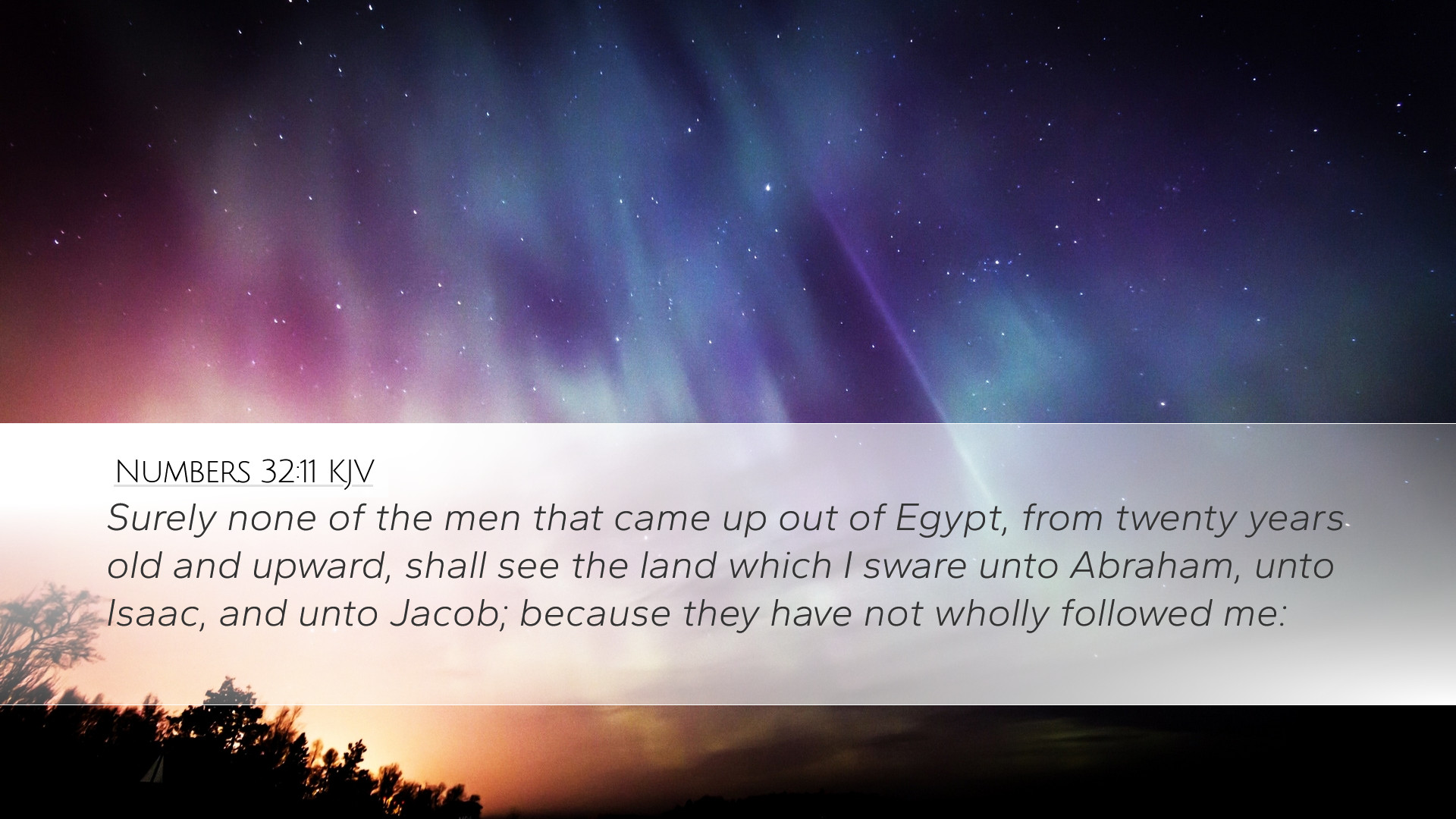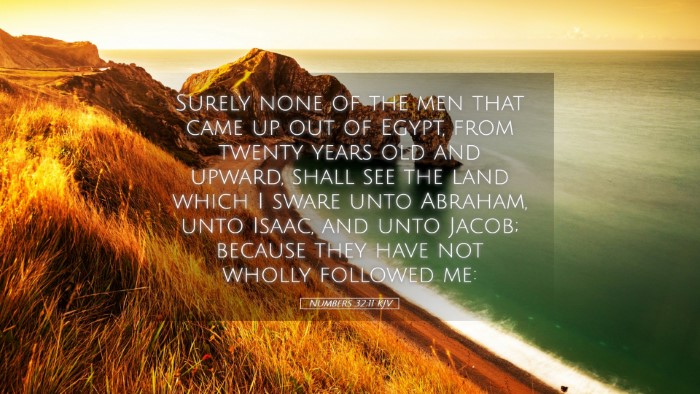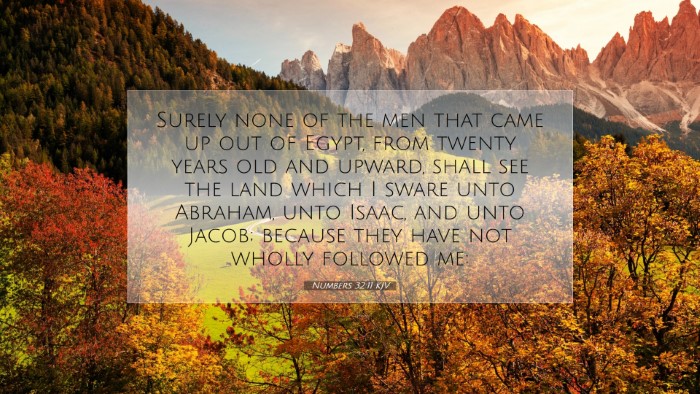Bible Commentary on Numbers 32:11
Numbers 32:11 states: "Surely none of the men that came up out of Egypt, from twenty years old and upward, shall see the land which I sware unto Abraham, unto Isaac, and unto Jacob; because they have not wholly followed me."
Contextual Background
This passage reflects a significant moment in the history of Israel, as they stood on the brink of entering the Promised Land after a long period of wandering in the wilderness. It addresses the consequences faced by the generation that left Egypt, emphasizing God's promise and the criteria for entering the land.
Theological Insights
Commentaries from various scholars reveal profound theological ramifications:
-
Matthew Henry:
Henry underscores the importance of obedience and faithfulness in following God. He asserts that a failure to 'wholly follow' God leads to significant spiritual consequences. In this verse, God is clarifying that partial obedience is insufficient for experiencing His promises. The Israelites' rebellion and lack of faith effectively barred them from entering the Promised Land, which serves as a lesson for future generations.
-
Albert Barnes:
Barnes notes that this statement is a divine declaration of judgment designed to maintain the holiness of God's promise. He emphasizes God's covenant with the patriarchs and how it sets a foundation for Israel's journey. The mention of 'twenty years old and upward' indicates a threshold for accountability and maturity, suggesting that those who are capable of understanding God's commands are responsible for their actions.
-
Adam Clarke:
Clarke discusses the divine justice reflected in the passage. He points out that the judgment was not arbitrary; it stemmed from the people's persistent disobedience. Clarke challenges readers to recognize that God's promises come with expectations, implying that faith without works is dead. The inability of the original exodus generation to enter the Promised Land serves as a cautionary tale against complacency in spiritual matters.
Historical Significance
This verse serves as a pivotal juncture in the narrative, confirming that the exodus generation's disbelief prevented them from entering the land promised to their ancestors. Notable historical insights include:
- The backdrop of Israel's exodus from Egypt, witnessing God's acts of deliverance, and the failing response of the people.
- The contrast between Joshua and Caleb, who demonstrated unwavering faith and were thus permitted to enter, representing the reward for faithfulness.
- The collective nature of community accountability in faith practices, as the group's decisions had consequences for individual opportunities.
Application for Today's Believers
This passage offers several essential applications for contemporary believers:
-
Faithfulness to God:
Just as the Israelites were called to follow God's commands completely, modern believers are reminded of the necessity for total devotion. Partial commitment does not align with God's desire for all-encompassing faith.
-
Understanding Consequences:
The notion that sin has real repercussions applies to today's faith journey. Christians are encouraged to reflect on their attitudes and actions, understanding that neglecting God’s guidance could hinder their spiritual growth and blessings.
-
Community Influence:
Recognizing the importance of a community’s collective faith practices underscores that individual choices affect the larger faith community. This calls for mutual encouragement and accountability among believers.
Final Reflections
Numbers 32:11 serves not only as a historical account but as a profound reminder of the importance of fidelity to God's purpose and the understanding of His promises. In studying this verse within its broader context, pastors, students, theologians, and Bible scholars can uncover deeper meanings that inform their faith journeys and disciplines.


